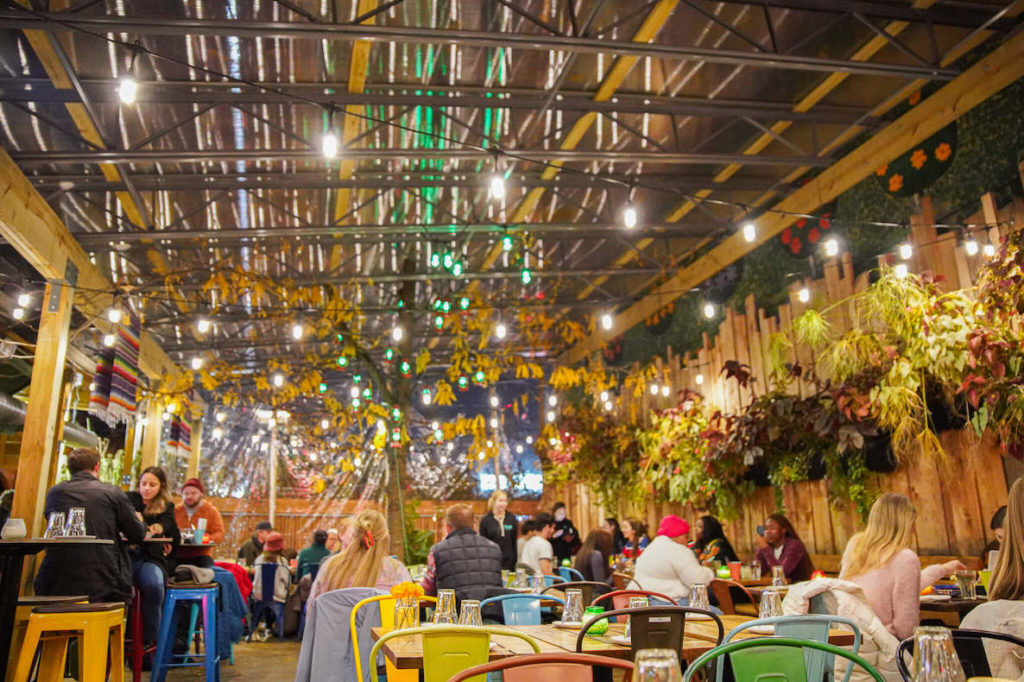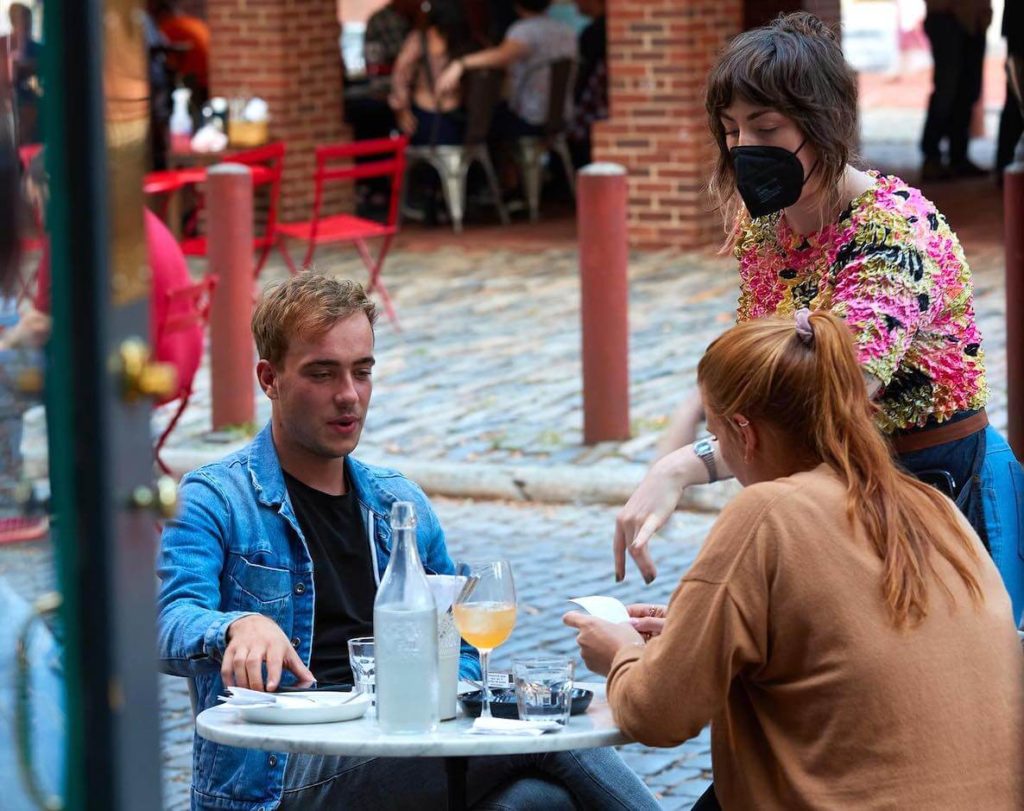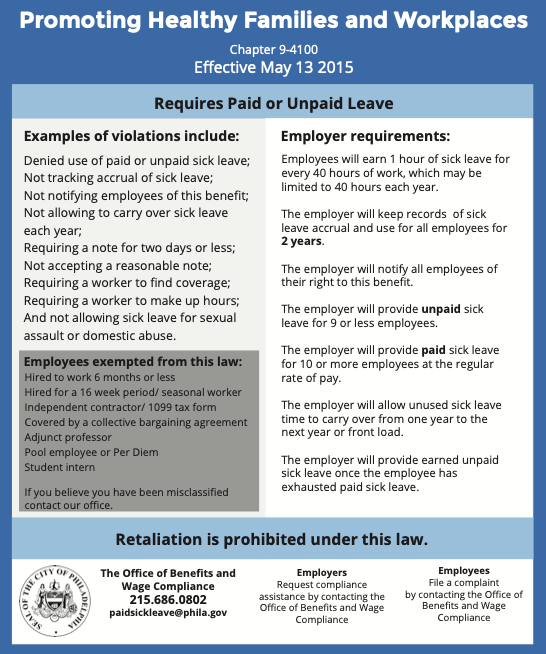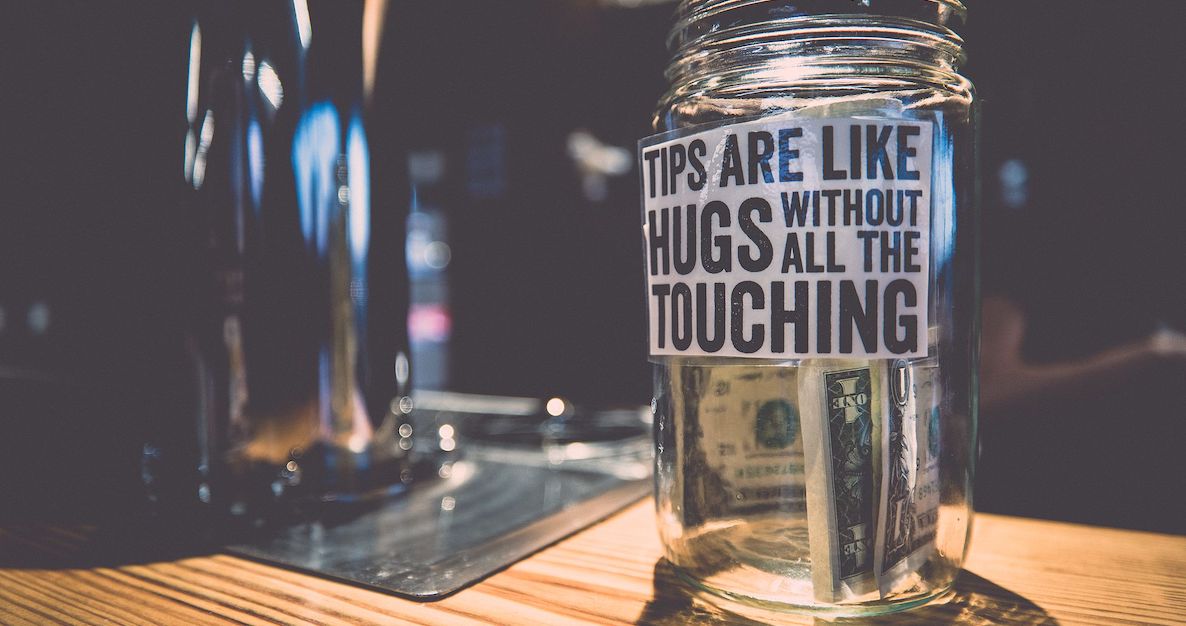For Michelle Cudia, at the time a bartender at Tria Taproom, the news about the citywide restaurant shutdown in March 2020, came—as it did for many—swiftly and suddenly.
Cudia was scheduled to show up for work on March 15; instead, she got emails from Tria’s owner and general manager saying that she and her coworkers were being immediately furloughed.
That put Cudia among the thousands of Philadelphia food industry workers out of a job for several weeks that spring and summer. More than 18 months later, the situation is far better than it was. Restaurants that made it through reopened months ago, often with streateries for all-year outdoor dining. And, if anything, workers have been in high demand.
RELATED: Check out the best outdoor dining in Philly to try this winter
Now, though, the omicron variant and surge in new Covid cases has thrown a wrinkle in the already trying recovery of the industry, with restaurants around the city being forced to close for days or weeks because of outbreaks among their staff. That this happened in the busiest season, when restaurants and servers make a huge chunk of their annual income—the December holidays—means it’s even more of a setback.
According to an Economy League report from 2019, some 79,000 people work in the food industry in Philadelphia, accounting for 12 percent of all jobs. More than half of those jobs are in restaurants, where the average annual wage (as of 2016) was around $21,000. These are not folks, in other words, who have abundant savings.
RELATED: What a pandemic reset might mean for an industry in need of revitalization
These are also some of the most economically vulnerable people in our midst: Nationally, restaurants are the No. 1 employer of single women, citizens returning from incarceration, first-time workers and immigrants. And many of them make their income primarily in tips, paid to them by those of us they feed, make drinks for and serve in Philadelphia restaurants.
That was the impetus for Cudia’s Philly Virtual Tip Jar, a way to allow for direct donations to waitstaff and bartenders. Launched the week the pandemic hit Philly, it is still online and open for donations.
Here’s how it works: Restaurant workers can fill out this Google form with their names; the restaurant where they work; and leave a PayPal or Venmo address.
Longtime customers (or anyone) can go to this Google Spreadsheet for the running list—updated daily at noon—and then donate a “tip” to those listed through their devices. The spreadsheet, which allows you to search by name of person or of the restaurant, works on an honor system. As of this week, there are more than 1,700 people on the list.
RELATED: Dine out, save restaurants
“I know this Tip Jar isn’t going to pay my rent,” Cudia said at the time. “But it’s given me something to think about while I process all this. I’m happy to help any way I can.”
A lot has changed since the Tip Jar went live, but two things are still true: Restaurants are part of what makes Philly the city we love and want to live in. And those who work in restaurants could use a little help.
Here are some other ways to help Philly servers
SUPPORT THE RESTAURANT REVITALIZATION FUND REPLENISHMENT ACT
The $28 billion Neighborhood Restaurant and Bar Grant Program—modeled after the RESTAURANTs Act, proposed by the Independent Restaurant Coalition (IRC) in April, 2020—launched last May. More than a quarter million eligible businesses applied for more than $65 billion in assistance through the program in just one week. Since June, the IRC has been advocating for a $60 billion replenishment of the Restaurant Revitalization Fund.
As IRC Executive Director Erika Polmar, said in a recent statement: “The latest Covid-19 surge will be the last straw for many restaurants and bars struggling with back rent, debt, and reduced consumer demand. These small businesses are being forced to choose between making payroll and keeping their staff and community safe during this surge.”
Here’s how you can advocate for the replenishment bill.
ENJOY OUTDOOR DINING

Many of our local restaurants have made big investments in providing cozy outdoor spaces for us to dine safely. Check out our guide to some of the most enchanting—then get out (dressed for the weather) and enjoy them.
ADVOCATE FOR STREETERIES IN EVERY NEIGHBORHOOD
Thanks to a bill City Council passed late last year, regulations around streeteries became confusing, seemingly arbitrary, and decidedly less equitable. Some restaurants—in primarily more affluent, whiter neighborhoods—will be able to reapply for their streeteries by right, while others will need to get special approval from their Council member. You can see which streeteries are excluded from the by-rights (some by mere feet) here. Reach out to your council member and urge them to level the playing field.
DINING INSIDE? HAVE YOUR VAX CARD READY.
As of January 3, proof of vaccination is required to dine indoors at all Philadelphia restaurants (there’s a two week grace period—until January 17—during which a negative Covid test within 24 hours before your reservation will suffice). So when you arrive, be ready with your card. It’s a small thing, but know that all patrons are not so easygoing about this new requirement and the more readily you cooperate, the better you make one restaurant worker’s day.
DINE OUT ON WEEKDAYS

If you have flexibility, go out to dinner on a Tuesday, Wednesday or Thursday—you’ll give restaurant workers much needed weekday income and likely have a more pleasant and relaxed experience. (Plus, it’ll be way easier to get a reservation!) And as a general rule: don’t show up 30 minutes before a place closes. You’ll cause the staff to have to stay later than they would have liked to.
ORDER TAKEOUT
Don’t forget about all the delicious options that are just a phone call away. And remember that the restaurant benefits most when you order directly from them (and not third parties like GrubHub). Check out our Takeout for Good list.
PROMOTE PHILLY’S SICK LEAVE POLICY
Share this graphic far and wide:

DONATE RAPID COVID TESTS
Say a server finds out the bartender they worked with Friday night has Covid. For everyone’s safety, they are required to stay home—missing shifts—until they can get a negative test. Imagine that happens several times a week over the course of several weeks. Starting at $14 a pop, the cost of returning to work adds up. If you somehow have a line on rapid tests, consider donating to your favorite independent restaurant. (You can also make sure they know about the Pennsylvania Restaurant & Lodging Association’s testing reimbursement program.)
TIP GENEROUSLY
Whether you go out, order in, or contribute to the virtual tip jar, giving extra will mean a lot to our restaurant workers.
![]()
RELATED
Header: Wikimedia Commons



